Top Tips – Get Ready for Your English GCSE and A Level Exams

It’s hard to believe how quickly the school year goes by, and that we’re in the summer term with the GCSE and A level English exams now about to start. The exams are where you’ll show how much you’ve learned and how much you know. So, here are a few tips to remember before and during your exams.
Before the English Exam
Study your class notes. Your teachers have carefully chosen the concepts, themes, and ideas that they centered their teaching around. As you prepare for your exam, focus on those areas that your teachers felt were important. Use your notes as a guide.
Prepare for different types of questions. English exams require careful application of each concept. Be prepared for questions related to literature or comparing the literature to other selections. Practise each type of question before the day of your exam. Surprises are not fun. Practising the types of questions will help you to feel more confident and more certain of your responses.
Look beyond the text
While you are studying, review and research the circumstances surrounding the writing of the works you have learned. Consider why they were written. What was going on politically and socially at the time the work was written? How did these influences affect the author? These perspectives go beyond the text to allow a deeper understanding of the impact the work has on our study of literature.
Getting Off To A Good Start
Take time to read the English exam paper. Read your questions very carefully. Make sure you understand all parts of the question. If the question asks for your view or opinions, construct it so that you carefully explain your point and support that point with evidence. Make sure your ideas are clearly stated so someone who does not know you can understand your explanation.
Mark the questions you feel confident in responding and those which you feel will challenge you more. Some students like to start with those questions they feel confident about but don’t spend all your time on these – a half answered paper won’t lead to a pass, even if the questions you have answered are all excellent.
Take time to rest and refresh. Stretch your neck and arms at regular intervals. Focusing on an exam paper can lead to tension, so look after yourself, take water with you and keep hydrated. Wear comfortable clothes. If you are not required to wear school uniform, resist wearing anything tight fitting. Layers are good as you can take off an outer layer if it gets too hot, or put it on if the air conditioning leaves you feeling chilly.
During the Exam
Monitor your time well throughout the exam. Note how much time you have when you begin each section. You want to give yourself plenty of time to plan your answers, construct your answers, and read back over to edit before running out of time.
Plan your answers
You are not wasting time if you take a few minutes to plan out how you will construct your responses. A poorly constructed response is confusing to the reader and may not adequately answer each part of the question. If the answer is difficult to follow or understand, it will not score well.
Edit carefully
Save enough time at the end to read over your answers completely. As writers, we sometimes overlook our own mistakes as we draft our responses. Only with careful editing can we find and correct our mistakes. Check your writing for grammatical accuracy, spelling errors, and punctuation errors. Also ensure that your writing is smooth and easy to read. Rushing through the writing can lead to messy handwriting that could be misread by a person scoring your exam.
You have worked so hard to prepare for this exam. Work slowly and carefully. Be confident in your responses. Take comfort in knowing that you are well prepared and must now explain your knowledge carefully.
Good luck!
Last Updated on December 7, 2021
